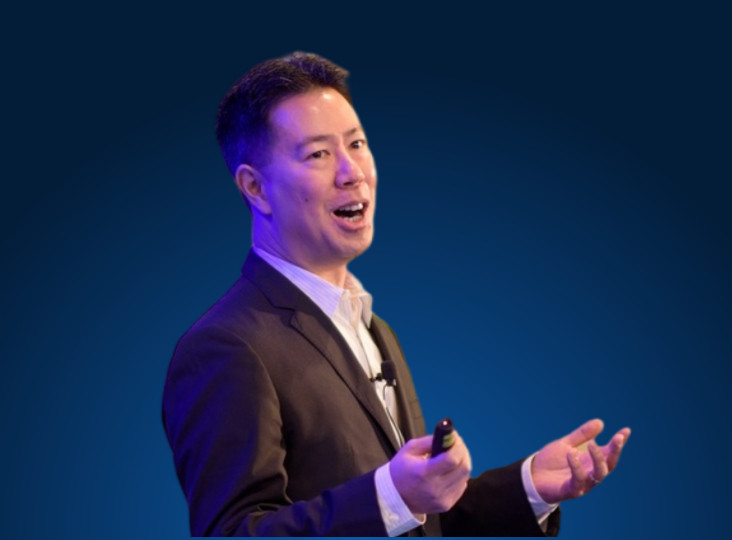HUB23 Speakers: Improving culture, equity, and the patient experience
Human Understanding Beyond | HUB23 speakers helped conference attendees engage and transform healthcare together. Here’s a look at how our Executive Track presentations provided strategies to focus on culture, equity, and the patient experience.
“The Walkalongside Leader™—Discover the Secret Culture of Your Organization,” presented by Michael Goldberg, founder of Walkalongside Leader, helps companies create leaders of the future.
In a world with record-setting rates of resignations and quiet quitting, it’s never been more important for leaders to bring personality and humility to the corner office. Did you know there’s a secret culture in every organization that’s not shared with leadership?
A day in the life of a Walkalongside Leader includes building trust, strengthening relationships, and improving communication. The result? A highly engaged workforce, greater retention rates, easier recruiting, and improved business results.
The STEPS to follow:
Shadow: Experience your company’s culture and workflow as your team does.
Take Notice: Spend meaningful time in the field to find opportunities that are impossible to see from your corner office.
Engage: Relationships are formed through experiencing life together. Only when you’re trusted, your people will feel comfortable sharing their true experience working for your organization.
Problem-Solve: Leaders are uniquely positioned to solve problems that front-line workers can’t. Your role is to remove the barriers others face and improve your team’s experience.
Share Often: Recognize team members who are doing it well. Tell everyone about them. Share the information that’s important to your team throughout the organization and beyond.
“Leaders should be willing to jump in and help for all roles in their company that they are legally able to perform,” Goldberg said.
“Upskilling Patients (and HCPs!) for More Equitable Healthcare,” presented by the Society for Participatory Medicine team of Daniel Z. Sands, MD, MPH, co-founder and Chief Advocacy Officer, Assistant Professor of Medicine at Harvard Medical School, and staff physician at Beth Israel Deaconess Medical Center, and Kistein Monkhouse, MPA, founder/CEO, Patient Orator, and board member.
How we provide care has a disproportionate impact on people of color. The power dynamic between the healthcare professional and the patient or their care partners is daunting for underserved people, especially people of color, and as a result, underserved populations experience poorer health outcomes and healthcare disparities.
Participatory medicine can transform the healthcare experience, process, and outcomes, improving patients’ and healthcare professionals’ satisfaction. Mutual trust is essential for advancing health equity.
The Participatory Medicine Manifesto echoes NRC Health’s philosophy of Human Understanding, with a promise to:
- Share and listen
- Respect one another
- Share information responsibly
- Promote curiosity
- Be a team builder
“Trust is the foundation on which all of this is based,” Sands said. “Trust is a two-way street, but patients are often not trusted by healthcare professionals, especially when they are persons of color, people with substance-abuse disorders, non-English speakers, people of different body sizes, and patients with certain diseases.”
Manifesto behaviors can be applied by patients and healthcare professionals to overcome complex interpersonal relationships within healthcare systems to improve relationships and drive better outcomes. Patients’ and healthcare professionals’ behavior can contribute to inequitable healthcare, but when healthcare practitioners embrace empathy, they can empower patients and professionals to embody participatory medicine.
“The Shared Human Experience = The Patient Experience,” presented by the uLeadership™ team of Lucy Leclerc, Ph.D., RN, NPD-BC, Chief Learning Officer; Kay Kennedy, DNP, RN, NEA-BC, CPHQ, Chief Executive Officer; and Susan Campis, MSN, RN, NE-BC, NBC-HWC, Chief Wellness Officer.
Remaining “high-touch” in the evolving and reactionary world of high-tech healthcare, workforce shifts, and fluctuating patient acuities requires an equally creative solution. Human-Centered Leadership in Healthcare (HCL) is an evidence-based, contemporary, and relational leadership style aligned with complexity, caring, and systems science. In essence? HCL is the foundation for Human Understanding.
“A human-centered leader has a heart and is not afraid to use words like care, kindness, and love,” said Campis. “Caring for others is a lot of our collective ‘why’; however, who is the last person we care for? Us. So we had to have a mindset adjustment; as leaders and human beings who care for others, we have to care for ourselves first.”
Outcomes of HCL include:
- Culture of well-being (increase in overall well-being, clarity in individual and collective ‘why’)
- Culture of excellence (improved quality, patient safety outcomes, stronger workforce growth)
- Culture of trust (healthy work environment with increased staff engagement)
- Culture of caring (enhanced employee and patient satisfaction)
If the pandemic has shown the healthcare world anything, it has shown us that leadership must have a balanced focus between metrics and recognizing the humanity and health of each team member.


